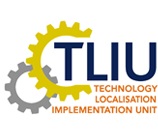Metal manufacturer taps into increased turnover, job creation and production efficiency
Fabrinox, a Western Cape metal manufacturing company, has reported increases in areas such as job creation, production efficiency, Black Economic Empowerment (BEE), skills development as well as financial turnover – 20% higher than anticipated – subsequent to the successful implementation of a Firm Technology Assistance Package (FTAP).
The FTAP is one of the solutions offered by the Technology Localisation Plan of the Department of Science and Technology (DST). Fabrinox, as a supplier to state-owned companies, was selected to form part of government’s drive to improve the competitiveness of local original equipment manufacturers, and could benefit from the mechanism established for this purpose, the Technology Localisation Plan.
“Fabrinox offers manufacturing solutions such as component manufacturing, sub-assemblies, under-licence manufacturing, project management and global installations. Manufacturing processes include state of the art precision laser cutting, bending, welding and surface treatment,” says Masande Dlulisa, Project Manager at the Technology Localisation Implementation Unit, a DST-supported initiative hosted by the CSIR.
He continues, “To enhance its international credibility, Fabrinox focused on increasing its competitiveness through continuous improvement of its operational systems and investment in technology and quality outputs. We started off with identifying a suitable skills development programme linked to a new machine purchased by Fabrinox. The intervention involved the development high-end technical skills in Germany, to enhance the capability of the local workforce. Fabrinox also required an upgrade of their enterprise resource planning (ERP) system to offer customers real time feedback.”
Key employees received advanced programming and machine operator training at Trumpf Germany, enabling Fabrinox to improve operator capability, which resulted in improved confidence and motivation levels as well as improved operating efficiency of machinery.
Fabrinox has also reported a significant increase in the number of permanent job opportunities (120% more than originally planned).
Andre Visser, Managing Director of Fabrinox, comments, “The most important component of the programme is that we were able to employ people best suited to the job and with the correct BEE profile. Our Black employees as a percentage of total staff complement increased from 57% to 65%. The female component improved by more than 150%. The programme also assisted us in unlocking potential by leveraging our existing Black employees to higher levels. This will result in a totally different BEE profile for Fabrinox.”
An upgraded ERP system and increased confidence and skill levels also resulted in an increase in turnover of almost R10 million. “Improvements in efficiency contribute substantially to the improved bottom line. We fully expect these gains to increase significantly with the roll-out of the ERP system resulting in double digit growth for the next financial year,” Visser concludes.
Ends.
For further information, please contact:
Tendani Tsedu
Media Manager: CSIR
Cell: +27 82 945 1980
Mtsedu@csir.co.za
Masande Dlulisa
Project Manager: TLIU
Cell: +27 73 303 5255
Mdlulisa@csir.co.za
About the TLIU:
The Technology Localisation Implementation Unit (TLIU) is an initiative of the Department of Science and Technology (DST), which is hosted and incubated at the Council for Scientific and Industrial Research. The TLIU was formed by the DST to implement the deliverables of its Technology Localisation Plan. Services provided by the TLIU include:
• Benchmarking and technology capability evaluation services;
• Technology capability platforms, or shared technology facilities;
• Access to technical expertise;
• High-end technical skills development programmes;
• Design and tooling support; and
• Technology transfer benefits/Offset programmes.
About Fabrinox: Fabrinox is a South African company with experience in manufacturing solutions offered on 6 continents, striving to provide the most accurate and prompt services to our esteemed worldwide clientele. Owing to our superior work standards, ethics and dedicated efforts, we have been able to set higher benchmarks in this domain. We are engaged in offering services of sheet metal and tube fabrication solutions, which includes custom tailored project management, global installation, procurement, technical advice along with manufacturing design and documentation, within an ISO 9001 & ISO 3834 environment.
Our reputation for quality and expert work is built upon the experience, and skills of our team and has earned us the Approved Supplier Status with customers such as Areva NP, General Electric, ABB, DeLaval, Orica, Ultra Spin & SAB. Our adoption of the latest manufacturing techniques and service solutions has enabled Fabrinox to tailor each customer's precise and specific fabrication needs.



